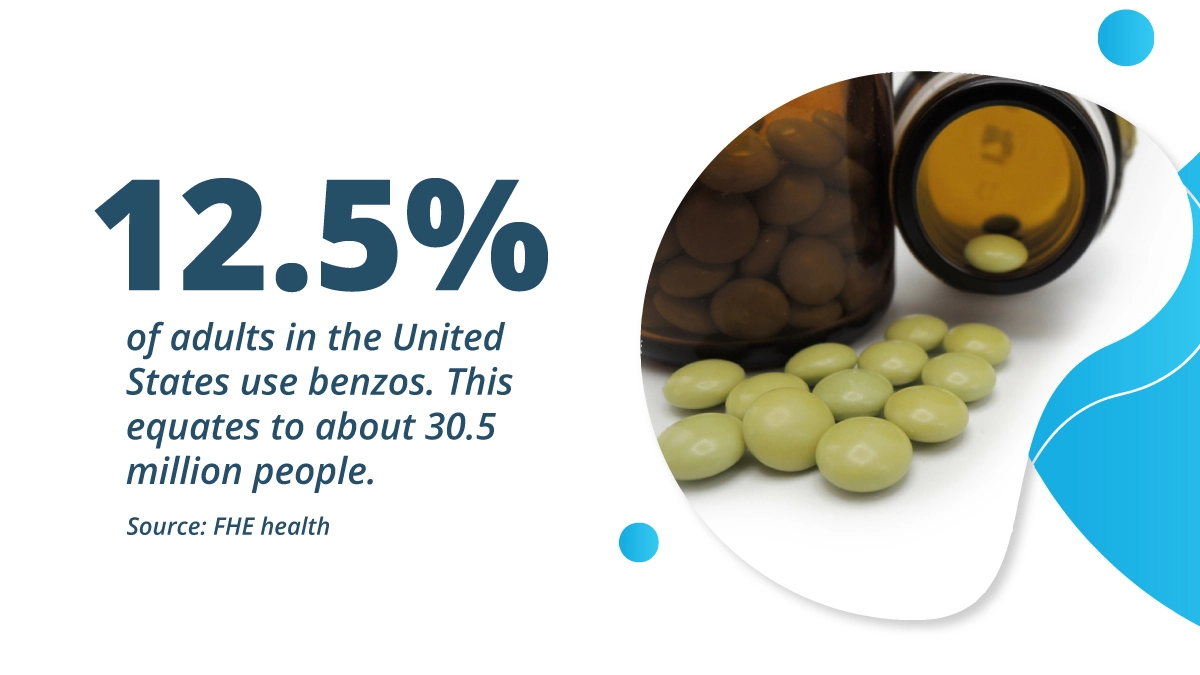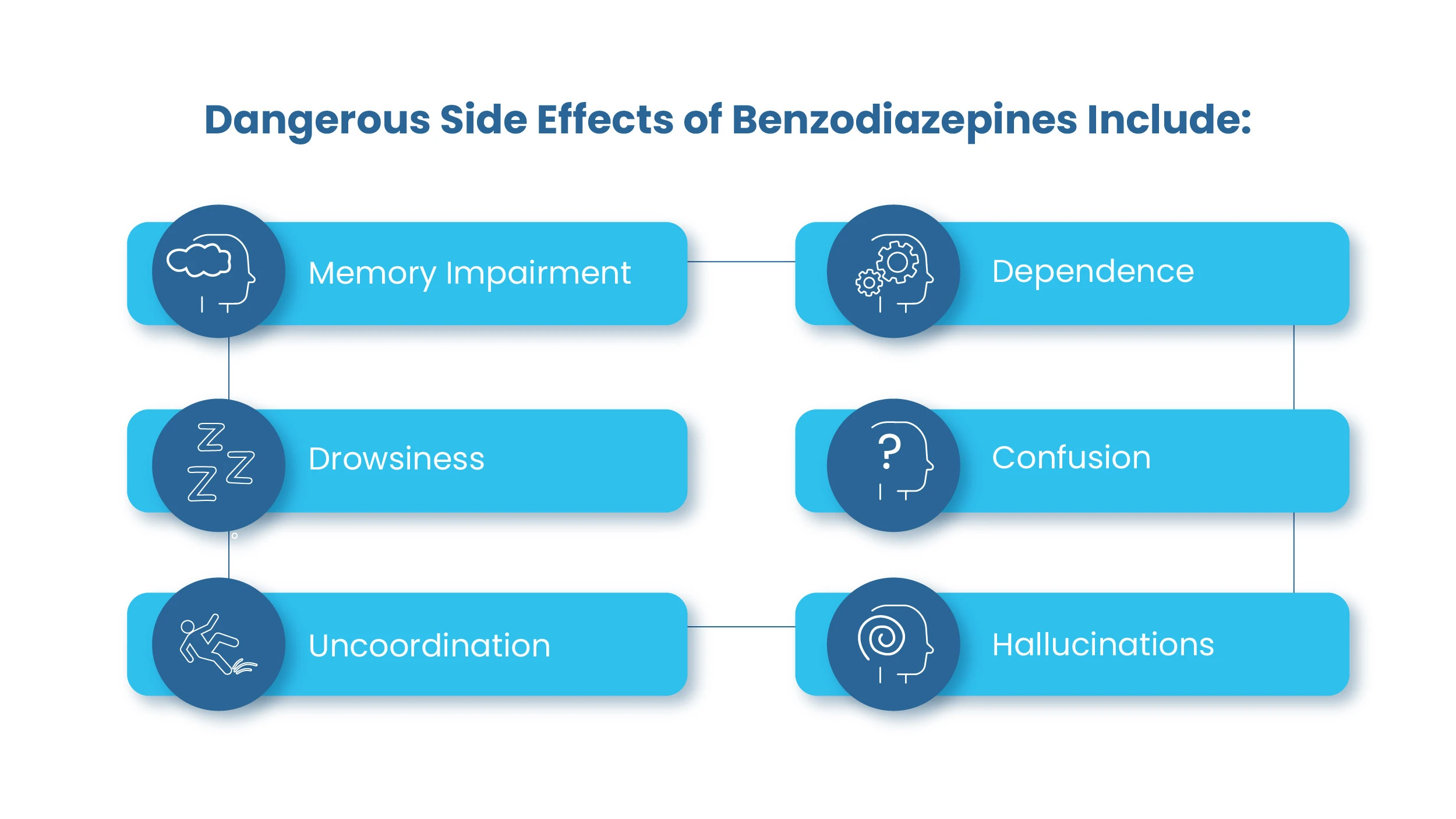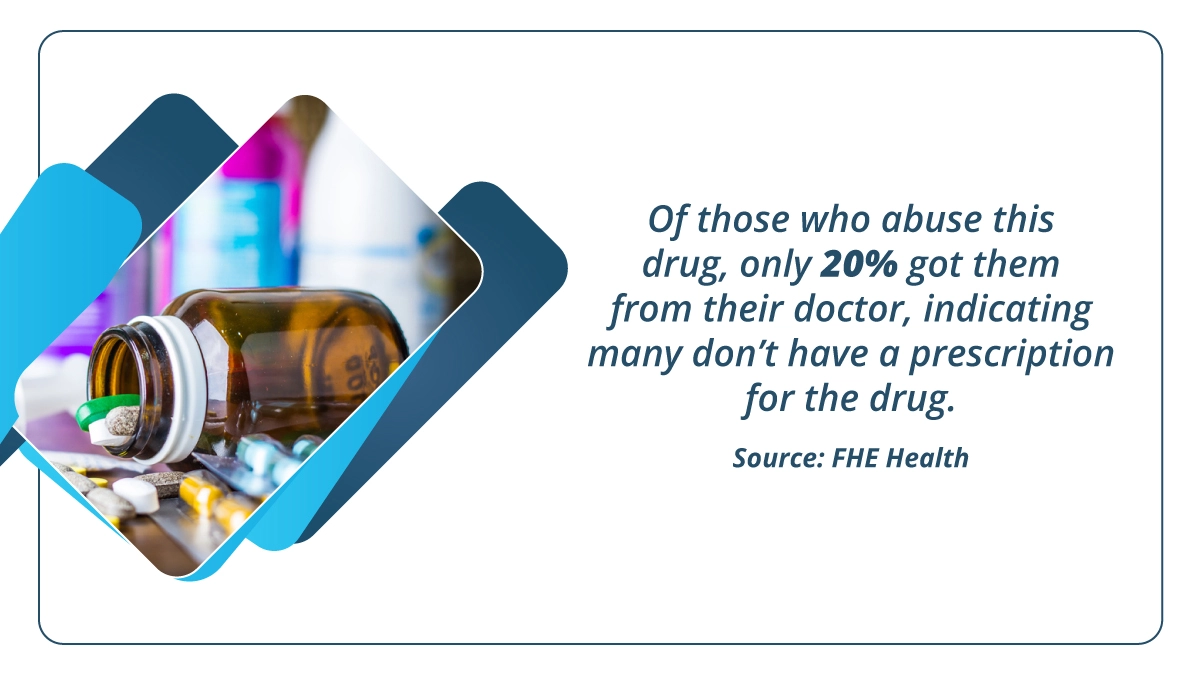Recovery in Arkansas: Battling Benzos
Benzodiazepines, also known as benzos, are a class of prescription drugs commonly used to treat insomnia, anxiety, alcohol withdrawal, seizure, and other related conditions. In Arkansas, like in many other states, benzos are regulated as Schedule IV controlled substances under the state’s drug laws.
When used frequently it can turn into addiction and dependence. According to the Arkansas Department of Health report, benzodiazepines were involved in 28.6 percent of all drug overdose deaths in the state in 2019, which is higher than the national average.
The most commonly involved benzos in these overdose deaths were alprazolam (Xanax), diazepam (Valium), and clonazepam (Klonopin).
Treatment Services for Benzo Addiction in Arkansas
To address the growing problem of benzodiazepine use in Arkansas, the state has implemented several initiatives. These include increasing access to addiction treatment services, educating healthcare providers about the risks of benzodiazepine use, and improving prescription drug monitoring programs to identify patients at risk for addiction.
Rehab programs in Arkansas help reduce the rate of benzodiazepine addiction in the community by using science-backed techniques like detox, MAT, and therapy.
Medication-assisted treatment (MAT) is a highly effective method of treating substance use disorders. Depending on the length and intensity of the addiction, those struggling with benzo use disorder might receive professional care in a hospital, residential or outpatient treatment program.
Behavioral therapies can help clients adjust their behaviors that may contribute to drug abuse while minimizing future relapse.

Key Takeaways
Benzodiazepines can be highly addictive, leading to severe physical and psychological dependence if not used properly. You’ll find the following findings in this article:
- Benzodiazepines, or “benzos,” are prescription drugs commonly used to treat anxiety, insomnia, and other conditions.
- The most common benzodiazepines are Ativan, Klonopin, Librium, Valium, and Xanax.
- Taking these medications in amounts higher than prescribed or more frequently can cause substance use disorder.
- Detox, residential, dual diagnosis, and therapies can help to stay sober and healthy.
If you are looking for help, get professional help from The Haven Detox-Little Rock. Contact us to learn more about our treatment programs and service charges.
Symptoms of Benzo Addiction
Benzodiazepines can have harmful effects when taken in high amounts. Although symptoms may show faster with shorter-acting benzos, symptoms often start to manifest 3–4 days to up to 2 weeks following use.
The following are potential acute toxicity or overdose signs and symptoms:
- Drowsiness
- Dizziness
- Blurred vision
- Confusion
- Weakness
- Slurred speech
- Difficulty breathing
- Lack of coordination
- Coma
When to Seek Treatment…
Benzodiazepines can lead to addiction when used for an extended period or in large doses. Here are some symptoms of benzodiazepine addiction:
- Increased tolerance
- Withdrawal symptoms
- Continued use despite negative consequences
- Using more than prescribed
- Spending a lot of time obtaining the drug
- Using the drug for non-medical purposes
If you or a loved one is dealing with any of these symptoms, seek medical help from an addiction specialist to stay sober and healing.
If A Loved One Needs Help
If a loved one needs help with benzodiazepine addiction, it is important to approach the situation with empathy, understanding, and a willingness to support them in their journey to recovery.
Following are some steps you can take to assist your loved one:
- Educate yourself
- Offer emotional support
- Avoid enabling behavior
- Be patient
- Encourage them to seek professional help

Causes of Benzo Addiction
Benzodiazepine addiction in Arkansas, like in any other location, can have multiple causes, including:
People with mental health disorders such as anxiety, depression, or post-traumatic stress disorder may be more likely to develop a benzodiazepine addiction as they seek relief from their symptoms.
Benzodiazepines can produce feelings of relaxation and euphoria, making them attractive to people who use drugs recreationally. Over time, recreational use can lead to addiction.
Research suggests that genetic factors can play a role in benzodiazepine addiction. Some people in Arkansas may be predisposed to addiction due to their genetic makeup and may be at higher risk of becoming addicted to benzodiazepines than others.
Benzodiazepines enhance the effects of a neurotransmitter called gamma-aminobutyric acid (GABA), which helps calm the brain and nervous system.
Benzodiazepines can produce a sense of euphoria or relaxation when taken in high doses or for long periods. This can lead people to use them more frequently or in more significant amounts than prescribed, increasing the risk of dependence and addiction.
In addition to their pleasurable effects, benzodiazepines can also cause uncomfortable withdrawal symptoms, such as anxiety, insomnia, tremors, and seizures, when a person tries to quit or reduce their use.

Risk Factors for Benzo Addiction
Benzodiazepines are habit-forming sedatives, meaning anyone taking them is at risk of becoming addicted. People who chronically take benzos can experience unsafe levels of calm and require more drugs to experience these desired effects.
Some of the risk factors for benzo addiction include:
One factor that can increase the risk of benzo addiction is easy access. When benzodiazepines are readily available, people may be more likely to use them regularly and to continue using them even if they do not need them for a medical condition.
This can lead to the development of tolerance, which means that higher doses of the drug are needed to achieve the desired effect.
Misusing benzodiazepines can quickly lead to addiction and other adverse health consequences, such as respiratory depression, overdose, and death.
Peer pressure refers to the influence that friends, acquaintances, or colleagues can have on an individual’s decisions and behaviors. In the case of benzo addiction, individuals may be more likely to engage in this behavior if they feel pressure from their peers.
One-way peer pressure can contribute to benzo’s addiction is through socialization. People in a social group that engages in drug use may feel compelled to use drugs to fit in or be accepted.
This can be particularly true for adolescents, who may be more vulnerable to peer pressure and less likely to resist it.
Lack of proper supervision can result in benzo addiction. Individuals taking benzos without appropriate medical supervision may take more than the recommended dose or use the drugs longer than prescribed.
This can lead to tolerance, where the body becomes accustomed to the dangerous effects of the drug and requires higher doses to achieve the same level of relief.
Tolerance can quickly become dependence, where the body needs the drug to function normally and experiences withdrawal symptoms when the drug is absent.

Common Effects of Benzo Addiction
Extreme drowsiness, confusion, impaired coordination, decreased reflexes, respiratory depression, coma, and possible death are some side effects of benzo addiction if left untreated.
Some of the common effects of benzo addiction include:
Addiction to benzos can have a significant impact on safety, as individuals who misuse these drugs can experience impaired judgment, coordination, and reaction time. This can lead to accidents, falls, and other injuries, especially when driving or operating heavy machinery.
Additionally, long-term use of benzodiazepines can lead to tolerance, dependence, and withdrawal symptoms, which can further impact an individual’s safety and well-being.
It is essential to identify the signs of benzo’s addiction and seek professional help to address the issue before it worsens and causes harm.
Misuse of benzo negatively affects relationships. As addiction takes hold, people may become increasingly withdrawn and isolated, causing strain on their relationships with friends and loved ones. Additionally, they may struggle with memory problems and cognitive impairment, making it difficult to maintain healthy communication and connection with others.
The erratic behavior that can come with addiction may also lead to conflicts and misunderstandings, further damaging relationships. Overall, benzo addiction can significantly impact all types of relationships, causing stress, conflict, and a breakdown in trust and intimacy.
One of the effects of benzo addiction on employment is that it can negatively impact a person’s ability to perform their job duties.
Benzos can cause drowsiness, confusion, and poor coordination, which can make it difficult to concentrate, remember important information, and respond quickly to job-related tasks. Additionally, suppose a person’s addiction leads to frequent absences, tardiness, or impaired performance. In that case, they may risk losing their job altogether.
Furthermore, the financial burden of addiction can also have a significant impact on employment, as individuals may struggle to maintain steady employment to support their addiction.
The effects of benzo addiction on health can be devastating and long-lasting. Chronic abuse of benzodiazepines can lead to respiratory depression, coma, and even death. Additionally, individuals who struggle with benzo addiction may experience impaired cognitive function, memory problems, and decreased productivity.
Benzodiazepine addiction can also lead to financial strain, social isolation, and strain on personal relationships. Overall, it is important for individuals who are struggling with benzodiazepine addiction to seek professional help to address their addiction and minimize the negative impact on their health and well-being.
Get Help
If you’re suffering from benzo addiction, getting help as early as possible is essential. Benzo addiction is a severe illness that can lead to many problems. Getting help as early as possible can significantly improve your chances of recovery. Call us to get started with treatment.
Our resources are available to help you overcome your addiction with evidence-based therapies and innovative treatments proven by medical science to effectively manage your addiction. Our admissions counselors can help you learn more about the disease and how to keep it out of your life. Contact us confidentially today.

Effective Treatments for Benzo Addiction
There are several treatment options available for benzodiazepine addiction in Arkansas. The best course of action will depend on the severity of the addiction and individual circumstances. Some possible treatment options include:
Medical Detox
Medical detox for benzo addiction typically involves gradually tapering off the drug under medical supervision. This allows the body to adjust to decreasing levels of the drug and reduces the severity of withdrawal symptoms.
The tapering schedule is tailored to the individual. It may take several weeks or longer, depending on the level of dependence and the specific drug being used.
During medical detox, patients may receive medications to help manage withdrawal symptoms, such as anxiety, insomnia, and seizures. These medications may include other benzodiazepines with longer half-lives, such as diazepam (Valium), or other drugs, such as clonidine or gabapentin.
In addition to medical care, behavioral therapies are often used during detox to help patients cope with cravings and develop strategies for long-term recovery.


Residential Treatment
After completing medical detox, patients may continue with outpatient or residential treatment programs to address the underlying causes of their addiction and learn skills for relapse prevention Inpatient treatment involves staying at a treatment facility for an extended period, usually 30-90 days.
Patients receive intensive therapy and support to overcome their addiction during this time.
In Arkansas, there are several inpatient treatment centers that specialize in addiction treatment, like The Haven Detox-Little Rock.
Dual Diagnosis Treatment Program
Dual diagnosis refers to the presence of both a substance use disorder and a mental health disorder. When it comes to treating benzo addiction, dual diagnosis is an important consideration because many individuals who struggle with benzodiazepine addiction also have co-occurring mental health disorders, such as depression and anxiety.
In the case of benzo addiction, dual diagnosis treatment may involve a combination of therapies, including medication-assisted treatment (MAT) and behavioral therapies. MAT consists of using medications like buprenorphine or methadone to help manage withdrawal symptoms and reduce cravings.
Behavioral therapies, such as cognitive-behavioral therapy (CBT) and dialectical behavior therapy (DBT), can help individuals learn coping skills, manage triggers and cravings, and address underlying mental health issues.


Adjunct Therapies
For people, especially veterans struggling with benzodiazepine addiction, there are several adjunct therapies that may be helpful. Here are some potential treatments
Here are some adjunct therapies that may help treat benzo’s addiction:
- Cognitive Behavioral Therapy (CBT): Cognitive behavioral therapy helps people identify and change negative thoughts and behaviors. CBT is effective in treating substance abuse disorders, including benzodiazepine addiction.
- Mindfulness-Based Stress Reduction (MBSR): This form of meditation focuses on being present in the moment and accepting one’s thoughts and feelings without judgment. MBSR can help individuals reduce anxiety and stress, common triggers for drug abuse.
- Yoga: Practicing yoga can help reduce stress and anxiety and improve sleep, which are all important factors in recovering from benzo addiction.
- Nutritional Therapy: Proper nutrition can help support the body’s natural detoxification processes and improve overall health. A diet rich in vitamins, antioxidants, and minerals can help individuals recover from benzo addiction.
Frequently Asked Questions
What are 3 types of benzos?
Benzodiazepines (commonly abbreviated as “benzos”) are psychoactive drugs used to treat anxiety, insomnia, and other health issues. There are many different types of benzodiazepines, but here are three commonly prescribed ones:
Alprazolam (Xanax) is commonly used to treat anxiety and panic disorders.
Diazepam (Valium) is commonly used to treat anxiety, muscle spasms, and seizures.
Lorazepam (Ativan) is commonly used to treat anxiety, insomnia, and seizure disorders.
Who Can Prescribe Klonopin?
Klonopin is a prescription medication used to treat anxiety and seizure disorders. In most countries, including the United States, Klonopin can only be prescribed by a licensed healthcare provider authorized to prescribe medications.
This includes physicians, nurse practitioners, and physician assistants. It is important to follow the healthcare provider’s prescribing instructions and dosage recommendations, as Klonopin can be habit-forming and may cause serious side effects if not taken as directed.
What drugs are in the benzo family?
Benzodiazepines, commonly known as “benzos,” are prescription drugs primarily used to treat anxiety and insomnia. Some of the most frequently prescribed benzodiazepines include:
Alprazolam (Xanax)
Diazepam (Valium)
Clonazepam (Klonopin)
Lorazepam (Ativan)
Temazepam (Restoril)
Triazolam (Halcion)
Flurazepam (Dalmane)
Oxazepam (Serax)
Chlordiazepoxide (Librium)
Midazolam (Versed)
Get Reliable Help from The Haven Detox-Little Rock
Addiction to alcohol, heroin, opioids, benzodiazepines, and cocaine can cause severe consequences if left untreated. If you are dealing with benzo addiction, ask The Haven Detox-Little Rock to help you regain a healthy life.
We offer effective addiction treatment services, including detox, residential, and outpatient treatment programs to help people recover from addiction-free life. Our highly qualified psychologists help patients to learn stress-coping techniques to stay sober.
Furthermore, our customer support is available 24/7 to answer our clients’ concerns. They assist you in choosing a suitable treatment facility for your loved one to get the maximum of our treatment services.
Call (501) 271-3342 to speak with our admission counselors.




